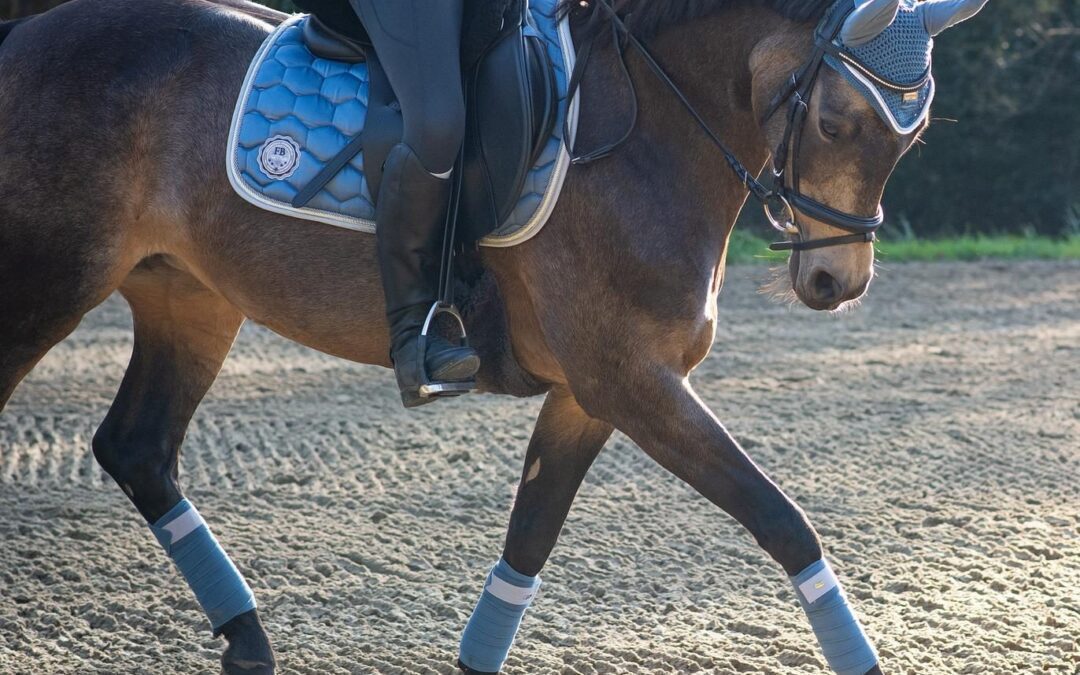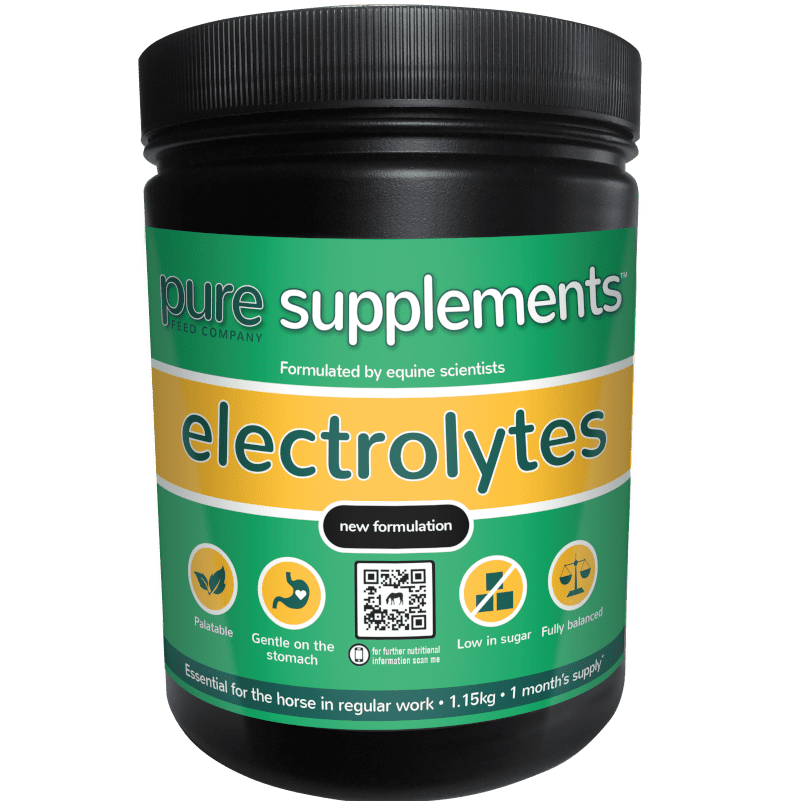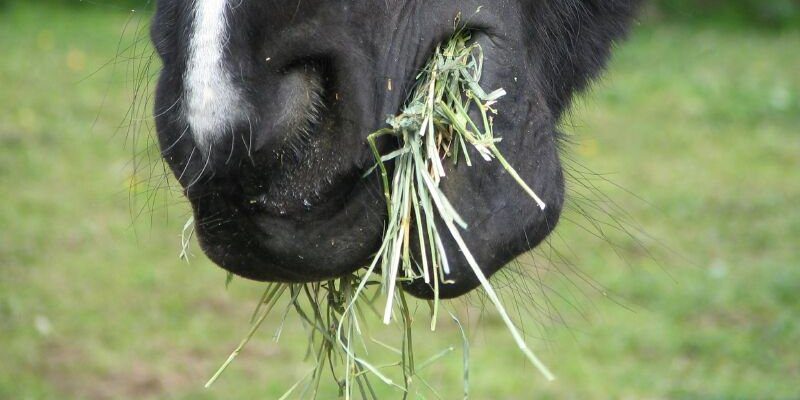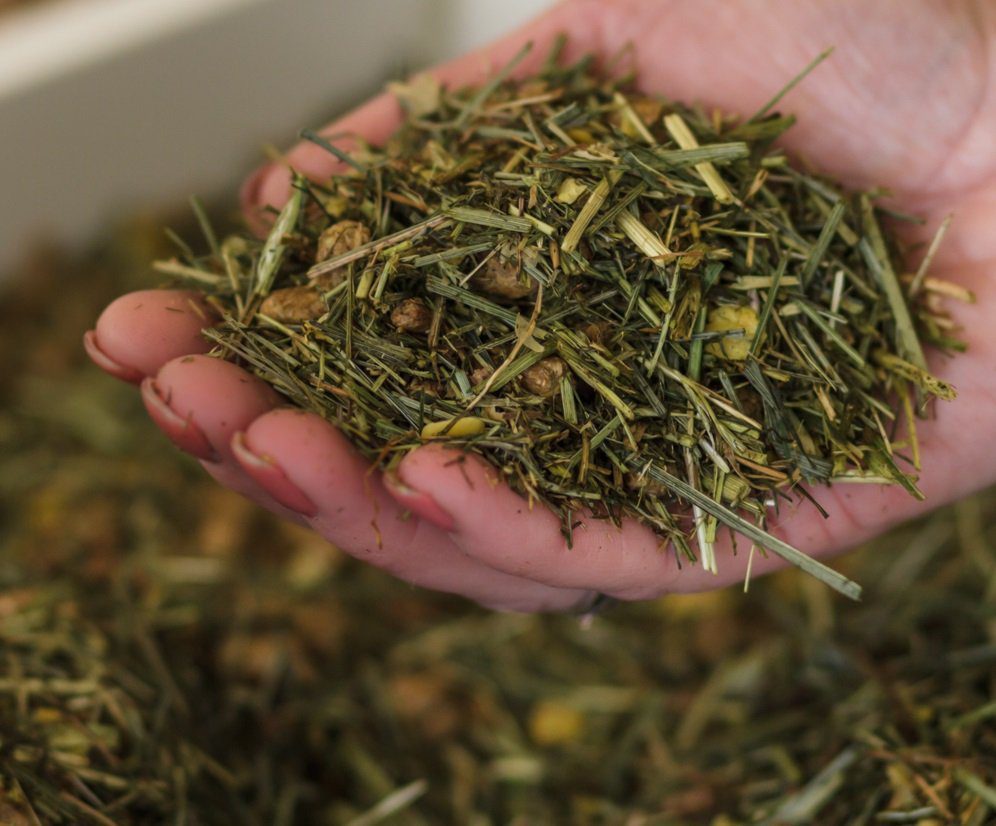Have you ever wondered what exactly that big tub of electrolytes in your feed room does? Why people recommend feeding them in hot and cold weather? And what exactly they do for your horse? Look no further than today’s blog post!

What are electrolytes?
Electrolytes are, essentially, a mix of minerals that work together to maintain equilibrium inside your horse’s body. When your horse sweats, all these minerals leave the body in the sweat
The 5 main electrolytes your horse requires are:
- Sodium
- Chloride
- Potassium
- Magnesium
- Calcium

Horses lose these electrolytes daily in urine, faeces and sweat.
Lets take a look at sweat…
Sweating is your horse’s primary way of cooling down. A horse in the field will produce minimal amounts of sweat, but as the exercise intensity increases so does the volume of sweat produced. During intense bouts of exercises, your horse can loose 10-18L of sweat.
During sweating, electrolytes are excreted through your horse’s sweat glands. Consequently, they can lose a lot of electrolytes – approximately 9g per litre of sweat. Sodium, chloride and potassium are present in large quantities in sweat, with smaller amounts of magnesium and calcium.
So what happens when your horse looses electrolytes?
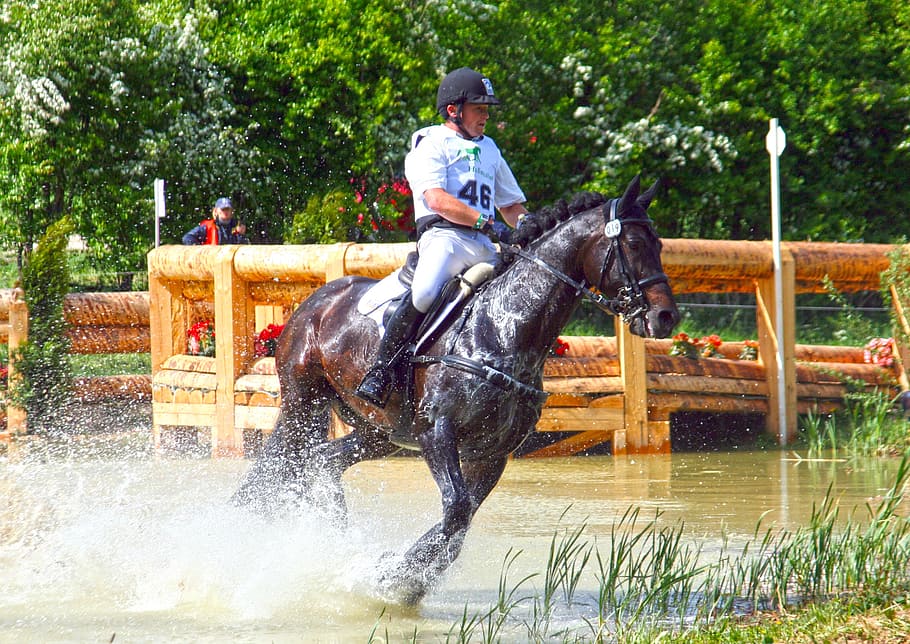
When your horse sweats out electrolytes, it is essential they are replaced as all the minerals play an important role in muscle, nerve and overall physiological function.
The loss of electrolytes can result in imbalances within the horse’s body:
- Muscle cramping
- Tying up
- Poor performance
- Fatigue
- Poor recovery after exercise, thumps (synchronous diaphragmatic flutter)
- Increased risk of fractures
Electrolyte deficiency can also cause a decrease in the horse’s thirst response, leading to dehydration. Sodium is the main electrolyte responsible for your horse’s regulation of thirst, and a deficiency of it can impair their ability to recognise when they need to drink.
Electrolytes FAQs
When does my horse need an electrolyte?
It is quite common for horses to not receive enough electrolytes from their diet alone. In particular, forage in the UK is particularly low in sodium. Grass and hard feed do provide a certain level of electrolytes, in most cases this is not enough to meet your horse’s requirements if they are in more than light work.
Electrolytes for performance horse
It is particularly important for performance horses to be provided an electrolyte supplement in their diet to prevent a deficiency. Horses that work intensively or for long periods of time are likely to be producing more sweat and thus losing more electrolytes and water.
To enable them to perform at their best, it is important to make sure that your horse is well hydrated and has sufficient electrolytes in their body before competition.
Can I just add salt?
For horses in light work that are consuming fresh grass and a balancer, adding some table salt will provide the additional sodium and chloride that they need. For a typical horse, adding 25g per day of table salt to their feed will provide them with enough sodium to meet their requirements.
Whilst giving your horse access to a salt lick will provide them with additional salt, several studies have concluded that horses do not regulate their intake to match their requirements with a salt lick.
What ingredients should I look out for?
When choosing an electrolyte supplement, make sure the main ingredients include sodium and chloride. Methods of electrolyte administration and absorption can vary by manufacturer, so look for a version that is stomach-friendly and efficient. You will also want to consider the tastes and preferences of your horse, as some electrolyte products are more palatable than others.
How do I feed electrolytes?
Electrolytes can be added to feed, water or given as a concentrated paste. If electrolytes are added to water, make sure to provide your horse with another source of fresh water, without anything added to it. In all cases when feeding your horse electrolytes, fresh clean water should also be available.
How often should I feed electrolytes?
Feeding an electrolyte daily, as opposed to just adding an electrolyte supplement after intense work or before a competition, is advisable. This will allow the horse to excrete any extra electrolyte that it doesn’t need and help prevent an electrolyte deficiency.
Feeding only after competitions could cause your horse to refuse their feed if they are not used to being fed electrolytes. In addition, suddenly adding large amounts of electrolytes before or after a competition to a horse that isn’t used to getting them could disturb the hind gut and cause gastrointestinal problems.
How much electrolyte should I feed?
The amount of electrolyte to feed will depend on several factors such as your horse’s breed, duration and intensity of exercise, fitness level, diet, environmental conditions and their individual metabolism. Look for the manufacturer’s guidelines and feeding recommendations on the packaging or their website.
Can I feed too much?
As always, it is important you follow the manufacturers guidelines and feeding recommendations. If you do, over-supplementation of electrolytes is unlikely. However, signs to look out for include excessive drinking and excessive urinating.
Pure Electrolytes
Pure Electrolytes are specifically designed to replenish the vital electrolytes that your horse naturally loses. With a carefully crafted apple-flavoured formula, we prioritise palatability, efficiency, and digestive comfort. Our formulation is gentle on the stomach as the protective fat coating minimises the salty taste, reducing the need for extra sugar. It also ensures efficient absorption in the small intestine.
Are electrolytes suitable for your horse? You can contact our expert nutritionists for individual advice at info@purefeed.com or give us a call on 01458 333 333. You can also request a FREE bespoke diet plan for your horse here.
